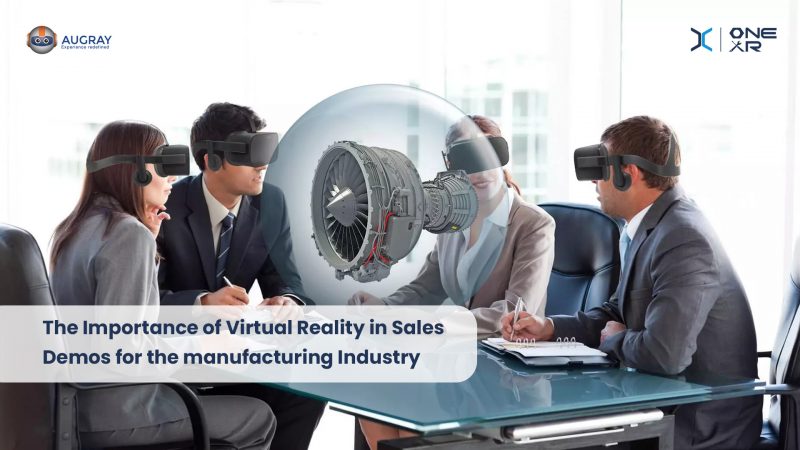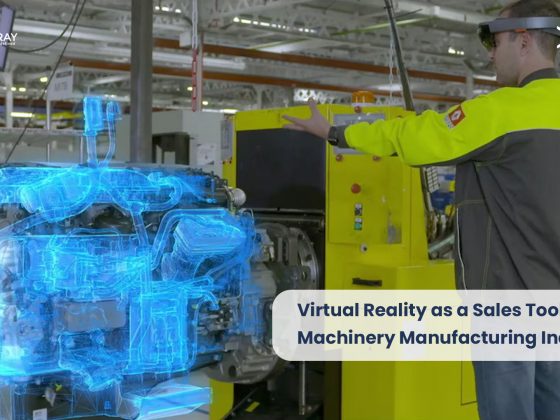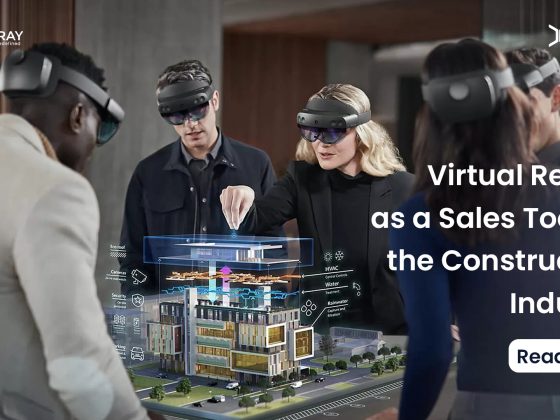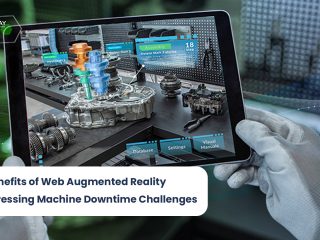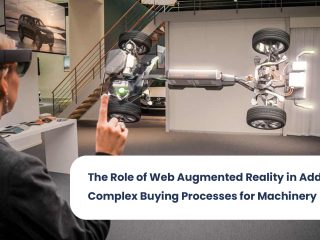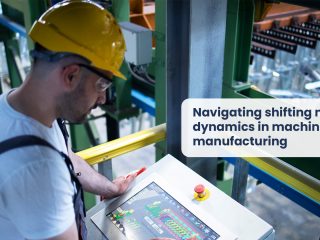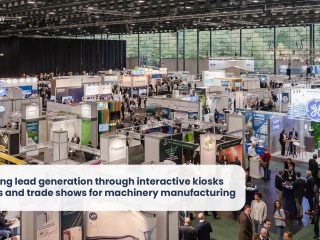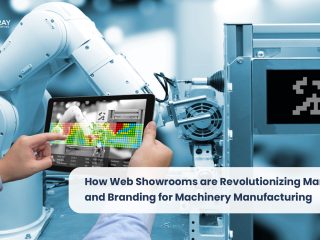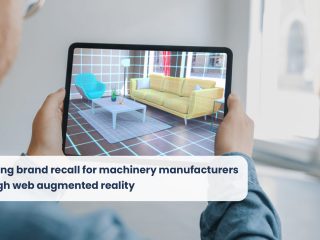Virtual Reality (VR) technology is transforming various industries, and the manufacturing industry is no exception. VR has become an essential tool in sales demos for manufacturers to showcase their products and services to potential customers.
By offering a realistic and immersive experience, manufacturers can effectively communicate the value of their products and services, making sales demos more engaging and effective. In this article, we will discuss the importance of virtual reality in sales demos for the manufacturing industry and the advantages of using this technology.
Enhanced Product Visualization
Virtual reality technology allows manufacturers to create immersive 3D product models that can be viewed from any angle. This allows customers to visualize the product’s features and benefits and understand how it works in a real-world setting.
For example, a manufacturer of construction equipment can use VR to showcase the product’s capabilities, such as excavators, bulldozers, and cranes, in a construction site simulation.
Better Customer Engagement
Virtual reality can help manufacturers create more engaging sales demos that capture the attention of potential customers. With VR, customers can interact with the product and explore its features and functionalities, making the sales demo more interactive and memorable.
For instance, a car manufacturer can use VR to let potential customers experience the car’s interior and exterior design, test-drive the car, and even customize it to their liking.
Improved Sales Pitch
Virtual reality can help manufacturers create a more persuasive sales pitch by demonstrating the product’s value proposition more effectively. By providing a realistic and immersive experience, manufacturers can show how their products solve customer problems and offer unique benefits.
For example, a manufacturer of industrial robots can use VR to demonstrate how the robots can automate a manufacturing process, reduce labor costs, and improve production efficiency.
Cost-Effective Marketing
Virtual reality can be a cost-effective marketing tool for manufacturers, as it eliminates the need for physical prototypes, which can be expensive to produce. With VR, manufacturers can create virtual prototypes that can be modified and improved quickly and easily, saving time and money.
For example, a manufacturer of medical equipment can use VR to create a virtual operating room and demonstrate how their equipment works in a surgical setting, without the need for a physical prototype.
Better Training Experience
Virtual reality can be an effective training tool for manufacturers to train employees on how to use their products and services. With VR, employees can experience a realistic simulation of the product and learn how to operate it safely and efficiently.
For example, a manufacturer of heavy machinery can use VR to train employees on how to operate and maintain the machinery, reducing the risk of accidents and increasing productivity.
Global Reach
Virtual reality can help manufacturers reach a global audience and showcase their products and services to potential customers worldwide. With VR, manufacturers can create virtual showrooms that customers can visit from anywhere in the world, making it easier to showcase their products to a global audience.
For example, a manufacturer of aerospace components can use VR to showcase their products at a trade show, allowing potential customers from around the world to experience their products in a virtual setting.
Increased Efficiency
Virtual reality can help manufacturers streamline their sales process and improve efficiency by reducing the time and resources needed to showcase their products and services. With VR, manufacturers can create virtual sales demos that can be accessed at any time and from anywhere, eliminating the need for in-person sales demos.
For example, a manufacturer of industrial equipment can use VR to create a virtual showroom where customers can explore the product features and benefits, reducing the need for physical demonstrations.
Advantages of Virtual Reality in Sales Demos for the Manufacturing Industry
- Increased engagement: Virtual reality offers a more engaging and interactive experience compared to traditional sales demos, which can lead to higher customer engagement and a better understanding of the product’s features and benefits.
- Improved customer experience: VR technology can help manufacturers create a more personalized and memorable customer experience, increasing the likelihood of a sale.
- Cost-effective: Virtual reality can be a cost-effective marketing tool for manufacturers, as it eliminates the need for physical prototypes and reduces the cost of in-person sales demos.
- Enhanced product visualization: VR technology allows manufacturers to create immersive 3D product models that can be viewed from any angle, improving the product visualization and making it easier for customers to understand the product’s features and benefits.
- Increased efficiency: VR technology can help manufacturers streamline their sales process and improve efficiency by reducing the time and resources needed to showcase their products and services.
- Global reach: Virtual reality can help manufacturers reach a global audience and showcase their products and services to potential customers worldwide, increasing the reach of their marketing efforts.
- Better training experience: VR technology can be an effective training tool for manufacturers to train employees on how to use their products and services, reducing the risk of accidents and improving productivity.
- Competitive advantage: By using VR technology in sales demos, manufacturers can differentiate themselves from their competitors and offer a more innovative and engaging way to showcase their products and services.
Virtual reality technology has become an essential tool for manufacturers in sales demos. With its ability to provide a realistic and immersive experience, VR technology can help manufacturers improve customer engagement, increase efficiency, and provide a competitive advantage in the market.
As the technology continues to evolve, we can expect to see more manufacturers adopting VR in their sales demos to improve their marketing efforts and increase sales.
